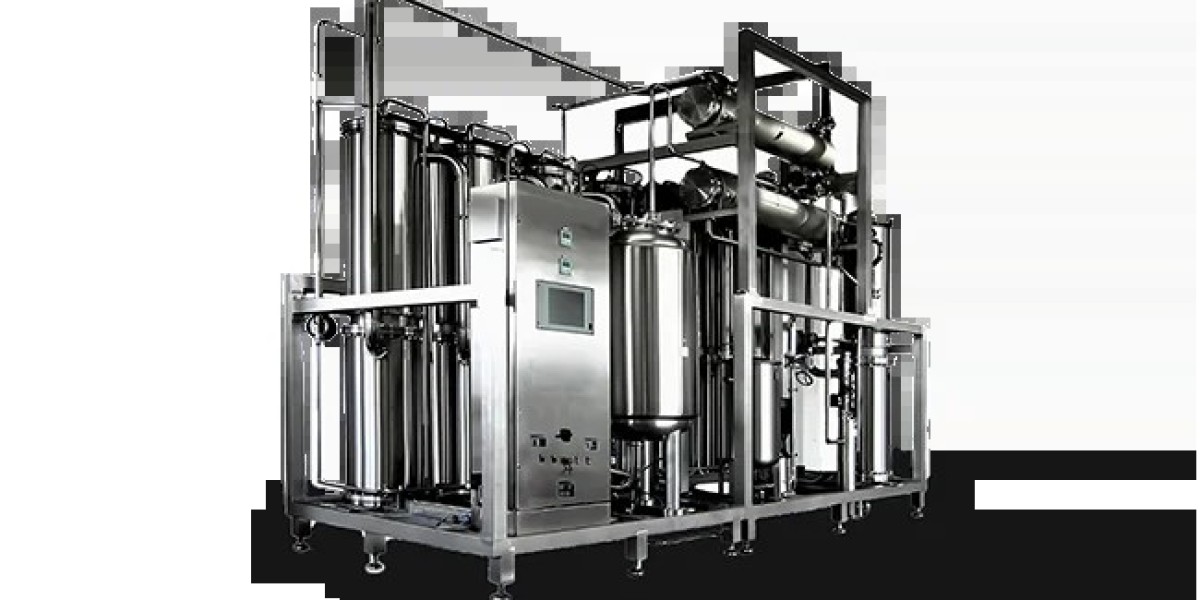In the pharmaceutical and biotech industries, the importance of water quality cannot be overstated. Water serves as a critical component in various processes, including formulation, manufacturing, and cleaning procedures. Therefore, a reliable and efficient water storage and distribution system is essential to ensure the safety, efficacy, and regulatory compliance of pharmaceutical products.
Importance of Water Quality
Water used in pharmaceutical applications must meet stringent quality standards. The United States Pharmacopeia (USP) specifies different grades of water, such as Purified Water (PW) and Water for Injection (WFI), each requiring distinct purification processes. The storage and distribution systems must maintain the integrity of this water, preventing contamination and ensuring it remains within the desired specifications.
Design Considerations
When designing a water storage and distribution system, several critical factors must be considered:
Material Selection: The materials used in the construction of tanks and piping must be compatible with high-purity water. Common materials include stainless steel and certain plastics that resist leaching and corrosion.
System Layout: The design should minimize dead legs—sections of the system where water can stagnate and potentially lead to microbial growth. Proper gradients should be included to ensure complete drainage and prevent residual water from remaining in the system.
Temperature Control: Maintaining appropriate temperatures is crucial, especially for WFI systems. Elevated temperatures can help prevent microbial growth, while also ensuring that water remains at its required quality standards.
Sanitization Procedures: Regular sanitization is essential for maintaining water quality. Automated systems that utilize heat or chemical sanitization processes can effectively manage these requirements, ensuring that the water distribution network remains contaminant-free.
Monitoring and Control Systems: Advanced monitoring systems should be integrated to track critical parameters, including temperature, pressure, flow rate, and water quality. Real-time data can help detect issues early, allowing for prompt corrective actions and ensuring compliance with regulatory standards.
Components of Water Storage and Distribution Systems
A typical water storage and distribution system in the pharmaceutical and biotech industries includes several key components:
Storage Tanks: These tanks are designed to hold large volumes of purified water. They must be constructed from appropriate materials to prevent contamination and are often equipped with level sensors to monitor water levels and prevent overflow.
Distribution Piping: Piping systems must be designed to facilitate efficient water flow while minimizing dead ends. Properly sized and installed pipes help ensure consistent pressure and flow rates throughout the system.
Pumps: Pumps are essential for moving water from storage tanks to various points of use within a facility. Variable speed pumps can be employed to adjust flow rates according to demand, enhancing energy efficiency.
Filtration Systems: Additional filtration may be required at various points in the distribution system to ensure that any contaminants are removed before the water reaches the point of use.
Control Valves: Automated control valves can regulate flow and pressure throughout the system. They can also be programmed to perform functions such as isolation during maintenance or emergency shutdowns.
Regulatory Compliance
Compliance with regulatory standards, such as those set by the FDA and EMA, is paramount in the pharmaceutical and biotech sectors. Water storage and distribution systems must be designed and operated according to Good Manufacturing Practices (GMP). Validation of the system is required to demonstrate that it consistently produces water of the desired quality. This includes documentation of design specifications, installation, operational qualifications, and performance qualifications.
Maintenance and Best Practices
Regular maintenance is crucial to ensure the longevity and reliability of water storage and distribution systems. This includes:
- Routine Inspections: Regular inspections should be performed to identify signs of corrosion, leaks, or microbial contamination.
- Cleaning and Sanitization: Tanks and distribution lines must be cleaned and sanitized according to established protocols to maintain water quality.
- Training Personnel: Staff involved in operating and maintaining the system should be adequately trained on the importance of water quality and the specific procedures required to maintain it.
Conclusion
In conclusion, a well-designed water storage and distribution system is critical for the pharmaceutical and biotech industries. By prioritizing quality, compliance, and proper maintenance, companies can ensure the integrity of their water supply, ultimately supporting the safety and efficacy of their products. The commitment to high-purity water solutions is not just a regulatory requirement; it is fundamental to the trust and safety that patients and healthcare providers expect from pharmaceutical products. SWJAL PROCESS Pvt. Ltd. is a leading manufacturer of water storage and distribution systems in Mumbai, India, dedicated to providing innovative solutions tailored to meet the needs of the pharmaceutical and biotech industries.








